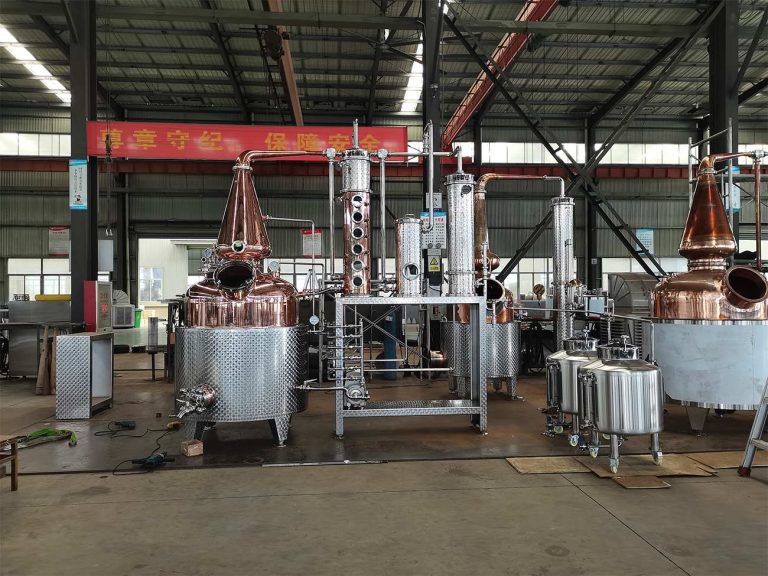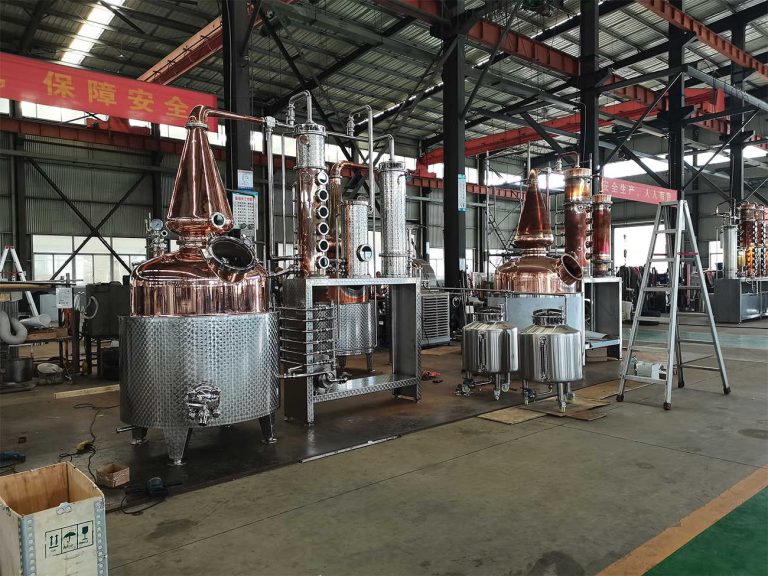

A 3BBL distillery equipment setup, much like the 200L setup but with a larger capacity, is designed for small to medium-scale distillation operations. This setup allows for increased production compared to smaller systems, making it suitable for craft distilleries or those aiming to produce a moderate quantity of spirits.
3BBL Distillation Equipment
A 3BBL distillery equipment setup, much like the 200L setup but with a larger capacity, is designed for small to medium-scale distillation operations. This setup allows for increased production compared to smaller systems, making it suitable for craft distilleries or those aiming to produce a moderate quantity of spirits.
Configuration
Actual volume 432L, Working volume 3BBL
Inner pot: red copper T2, thickness: 3m
Dished head: red copper T2, thickness: 3m
Jacketed: SUS304, thickness: 4mm
Insulated: 50mm, PU
Stirring motor: explosion-proof mixer 0.37KW/46rpm(EX)
Outer shell: SUS304, thickness: 2mm
Temperature control: PT100
Heating method: 2*10KW electric heating rods
With glass manhole, CIP cleaning ball, safety valve, sight light, steam trap, etc.
Material: red copper T2, thickness: 3mm
Red copper tubes, each tray has bubble caps, and with CIP cleaning balls, Drain valve, thermometer
Material: Red copper T2, thickness:3mm
With cooling water inlet and outlet
Material: SUS304
Size: 4″
Features: you can put plant spices, fumigate scented wine, such as gin
Material: SUS304, thickness: 3mm
Size: 6″, 900mm
With cooling water inlet and outlet
Category: Sanitary centrifugal pump
Power: 0.75KW (explosion-proof)
Flow rate: 3T/H, head 24m
Working medium: water
Working temperature: 10-100℃
Features: Can clean the distillation kettle, copper head, column, gin basket
Material: SUS304, thickness: 2mm
Control Box
Material: SUS304
Sight light, motor, CIP pump
A 3bbl distillation equipment setup would allow for smaller-scale production, suitable for craft distilleries, experimental production, or for those interested in producing limited quantities of spirits. As with any distillation operation, regulatory compliance, safety measures, quality control, and adherence to specific spirit-making processes remain essential considerations regardless of the equipment size.